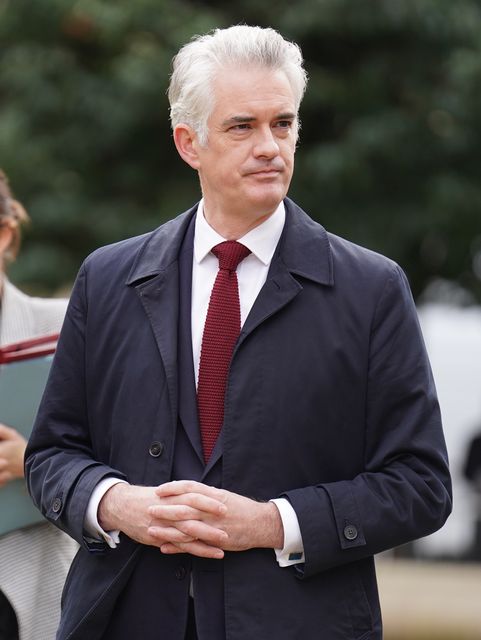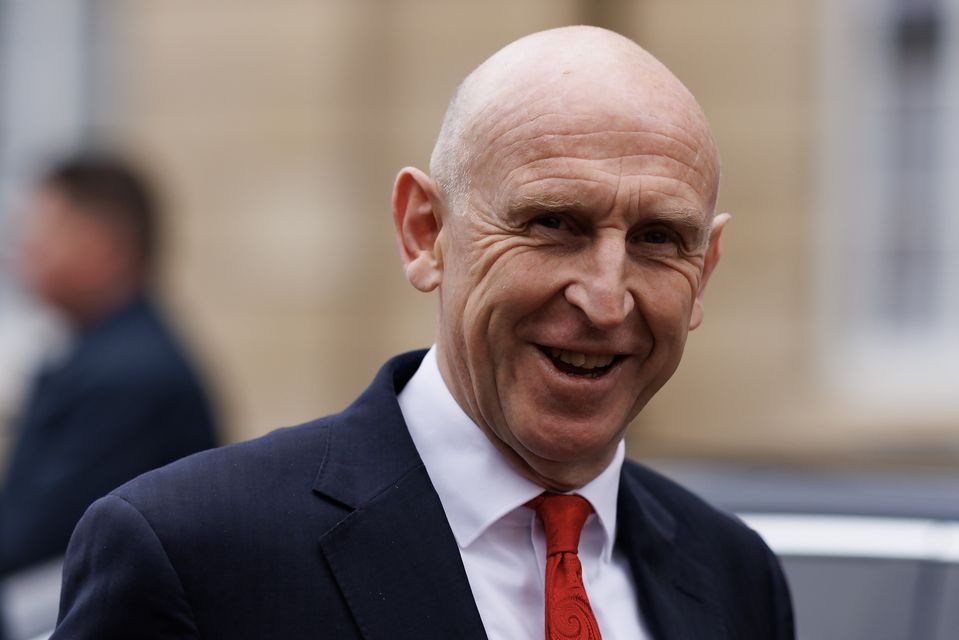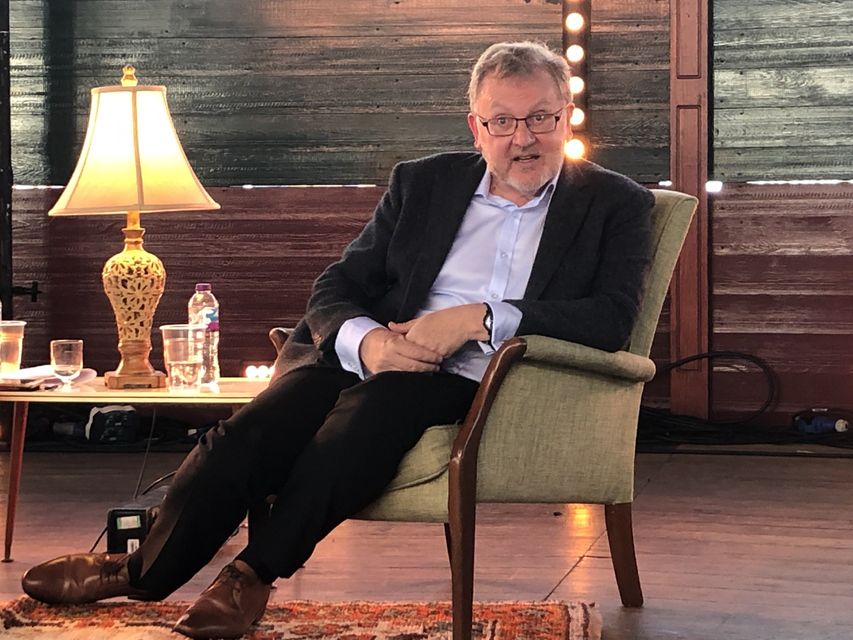Ministers have been urged to prioritise funding the UK’s military over giving more money to Mauritius to resolve the future of the Chagos Islands.
The Conservatives raised concerns over reports that Mauritius wants £800 million a year in return for taking over control of the archipelago while allowing a joint US-UK military base to remain on Diego Garcia, the largest of the islands.
The UK Government has argued that a deal to hand over the islands, known as the British Indian Ocean Territory, is necessary following an International Court of Justice ruling.
Shadow defence secretary James Cartlidge said the agreement represented ‘terrible value for money for the over-taxed British public’ (James Manning/PA)
But the proposed agreement, which includes the UK paying an annual sum of money, was struck before elections in both Mauritius and the United States and has run into trouble since the results of those contests.
Shadow defence secretary James Cartlidge said the agreement represented “terrible value for money for the over-taxed British public”, adding that cash should not be spent on “leasing back a military base that we currently own”.
Defence Secretary John Healey said he regretted “Conservative carping” over the deal and said it seemed to be supported by “almost everyone” apart from the Opposition.
Speaking during defence questions, Mr Cartlidge told the House of Commons: “At every turn, ministers have refused point-blank to tell us how much their Chagos deal is going to cost British taxpayers.
“Well, now we know why – because the Mauritians want £800 million a year.
“So can the Secretary of State tell us, whatever that figure is to lease back the base that we currently own, what percentage of that cost will come from the MoD’s (Ministry of Defence’s) budget?”
Mr Healey said: “I regret the Conservative carping over this Diego Garcia deal.
“The negotiations were started by Conservative ministers, they conducted 11 rounds of negotiations as Conservative ministers. The agreement safeguards the effective operation of the joint UK-US base for at least 99 years.
“It’s supported by US agencies, it’s welcomed by India, the African Union and the UN Security Council – almost everyone, it seems, except the Conservatives.”
Defence Secretary John Healey said he regretted ‘Conservative carping’ over the deal (Dan Kitwood/PA)
Mr Cartlidge countered: “Correct, because it’s a terrible deal.”
He added: “That’s why we never would have signed it. The fact is the incoming US president (Donald Trump) opposes the deal, the Mauritians are seeking to renegotiate it and by any measure it is terrible value for money for the over-taxed British public.
“So does the Secretary of State really think it’s in our national interest to spend hundreds of millions of pounds leasing back a military base that we currently own instead of spending every penny of that money on our own armed forces in the UK?”
Mr Healey said the agreement would ensure the military base on Diego Garcia was “undisputed and legally secure” before highlighting support from the current US administration.
Chagossians were forced to leave the central Indian Ocean territory by 1973 to make way for the military base.
Conservative MP David Mundell asked Mr Healey what discussions there had been between the UK and incoming Trump administration on the future of the Diego Garcia base (Laura Paterson/PA)
The expulsions are regarded as one of the most shameful parts of Britain’s modern colonial history and Chagossians have spent decades fighting to return to the islands.
Conservative former minister David Mundell asked Mr Healey to set out what discussions there had been between the UK and the incoming Trump administration on the future of the Diego Garcia base.
Mr Healey replied: “The system in the US is very different to ours. The administration that is in place at the present is in place until inauguration day on January 20.
“That’ll be the point at which we as the UK Government start to pick up direct discussions with the incoming administration.”
Mr Healey went on to highlight the importance of the UK-US relationship on security.


